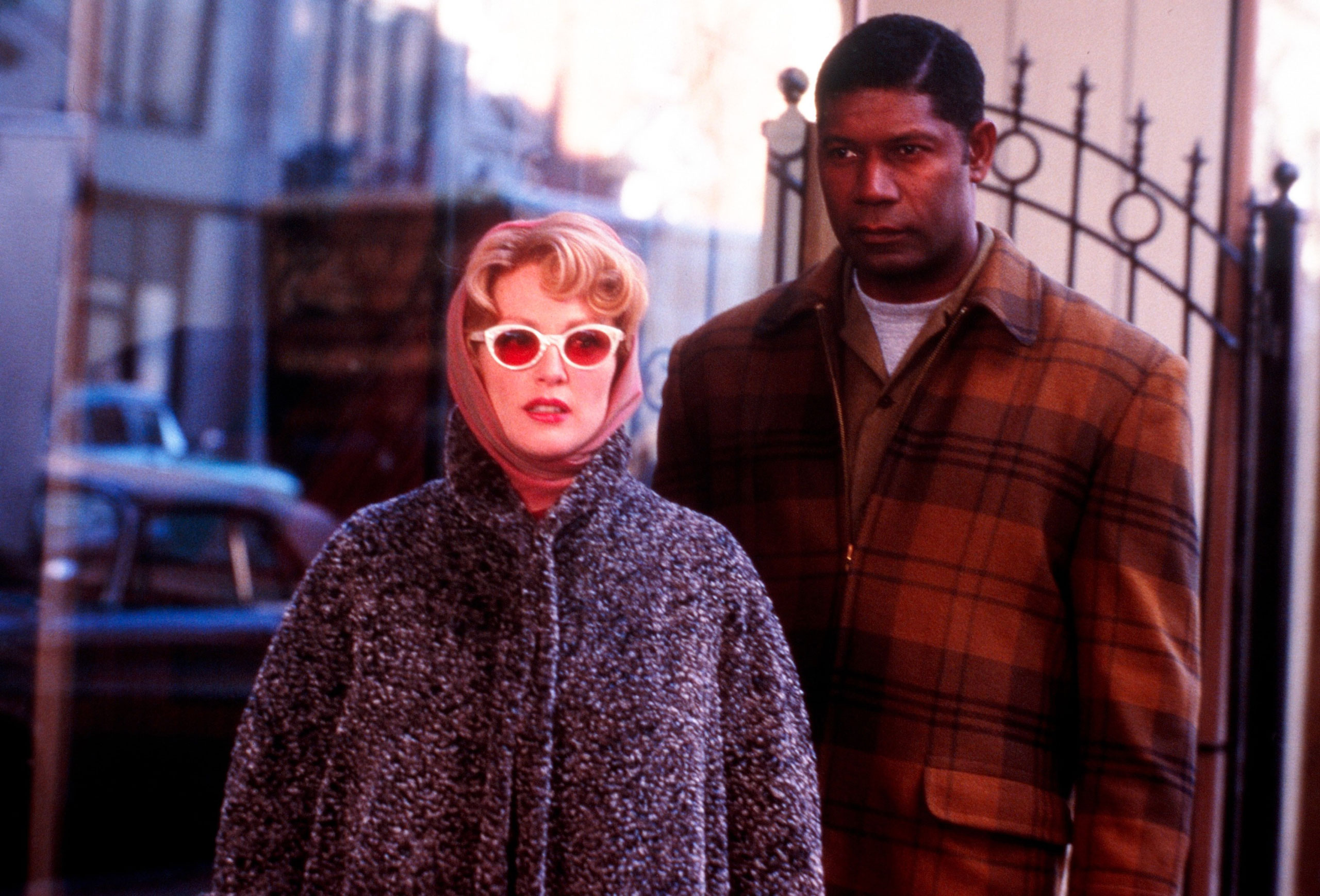Todd Haynes’ Far from Heaven, made in the spirit of Douglas Sirk’s searching melodramas of the 1950s, appeared in 2002, a not-particularly hopeful year in American politics, with the aftershock of 9/11 still reverberating. But by the end of the decade, it seemed we were at least on our way toward solving some of our problems: gay marriage had been accepted, even embraced, by many if not most Americans; racial inequality was nowhere near being erased, but a path forward seemed possible. How many steps forward will we ever be able to take before being yanked back? Far from Heaven is more than 20 years old now, but it has as much to say as ever about the complexity of the human heart, and the dangers posed by any society that tries to control it.
Julianne Moore is superb as Cathy Whitaker, an optimistic homemaker and mother in 1957 suburban Connecticut who discovers that her husband, Frank (Dennis Quaid), is gay. The couple tries to work through this problem, a problem that can’t be worked through. Meanwhile, Cathy falls in love with her gardener, Dennis Haysbert’s Raymond, who is Black, and the ladies of Hartford are having none of it. Using the visual color language of Sirk, a world of hot-and-cool extremes of red, blue, and gold, Haynes explores the unpredictability of love and the suffering humans can inflict on one another in the service of maintaining some skewed sense of order. It’s a gorgeous film, both passionate and compassionate, about feeling our way along toward growth and change, even more relevant now that so much progress has been erased. Forward movement is our only hedge against hopelessness.
- Donald Trump Is TIME's 2024 Person of the Year
- Why We Chose Trump as Person of the Year
- Is Intermittent Fasting Good or Bad for You?
- The 100 Must-Read Books of 2024
- The 20 Best Christmas TV Episodes
- Column: If Optimism Feels Ridiculous Now, Try Hope
- The Future of Climate Action Is Trade Policy
- Merle Bombardieri Is Helping People Make the Baby Decision
